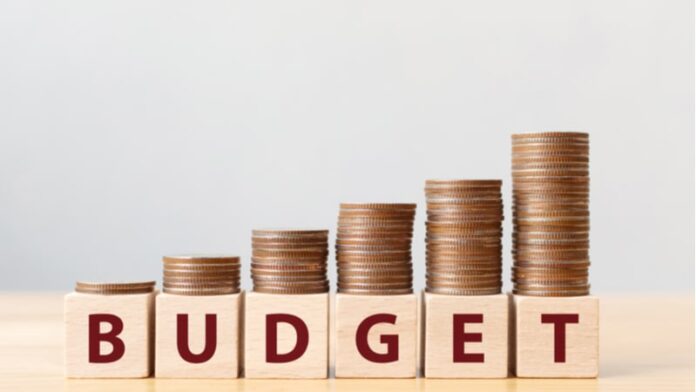The coalition government Friday unveiled the “toughest” federal budget for the next fiscal year 2022-23 in the National Assembly with an outlay of Rs9.5 trillion amid strict conditions of the International Monetary Fund (IMF) for the revival of the $6 billion loan programme stalled since months over policy breaches.
Finance minister Miftah Ismail started his speech by saying that the past government left the country’s economy in doldrums and hurt investor confidence by changing finance ministers and financial policies frequently.
It is interesting to know that the entire budget speech was made in an orderly fashion as members of the opposition listened to the complete budget speech.
The finance minister was of the view that the ruling coalition took over the country’s reins despite “the fact that it will have to take difficult decisions to save the economy” which may harm their respective parties’ popularity but they chose to keep national interest above party interest.
Miftah Ismail, while presenting the budget proposals, said that out of total Rs9.502 trillion budget, an amount of Rs2,950 billion had been allocated for debt servicing and Rs800 billion earmarked for the Public Sector Development Programme (PSDP 2022-23).
He said an amount of Rs1,523 billion had been earmarked for defence expenditures, Rs550 billion for civil administration and Rs530 billion for pensions. Similarly, Rs699 billion had been proposed for providing targeted subsidies to the poor segments of society.
Miftah said that owing to the high petroleum prices, people earning less than Rs40,000 will be given relief of Rs2,000 per month, which will continue in FY23 budget as well. He said that taxes will be imposed on goods that are mainly consumed by the rich to provide relief to the common man and that the federal government has established a pension fund releasing Rs10 billion for it.
Miftah Ismail said that Prime Minister Shehbaz Sharif wanted to extend maximum relief to the people, especially the poor during these difficult times. “For this purpose, the government has taken several steps to provide subsidy and assistance. However, the continuation of this (relief) will require more resources,” he added.
He emphasised on the need to impose special tax on higher income earnings in order to divert the resources to the poor people. “Our budget philosophy is to enhance agriculture production, especially the edible oil in order to reduce agricultural imports. We need to promote industries to bolster exports and earn valuable foreign exchange,” he added. This, he said, will help address the issue of balance of payments on permanent basis.
The finance minister announced that owing to the high inflation in the country, the government has increased salaries for its employees by 15 percent, adding that the pensions have also been raised by 5 per cent.
The minister said that FBR revenue has been estimated at Rs7,004 billion for the next fiscal year. “This includes Rs4,100 billion share of provinces. The net revenue with the federal government will be Rs4,904 billion. The non-tax revenue will be Rs2,000 billion.”
According to the government, this budget would lay “the foundation for future growth budgets” with its focus on exports and agriculture. The budget will provide relief to the middle class as the government has decided to increase the income tax ceiling on the salaried class from Rs6 lac to Rs12 lac per annum. The salaries of the government employees would increase by 15 per cent as well.
Due to the inflation, households earning less than Rs40,000 will be compensated by the government in addition to a significant increase in the funding for Benazir Income Support Program (BISP). BISP scholarship is being extended to 10 million students.
Similarly, the government has also decided to give tax breaks to IT, agriculture, clean energy, and education sectors. In this budget, it has been proposed to waive sales tax on the import and distribution of solar panels to boost clean energy. The agri machinery, including tractors, along with seeds, will also be exempted from tax.
As per the budget documents, agriculture machinery would be exempted from customs duty; greenhouse farming, drip irrigation, and water supply would be exempted from tax.
The government also plans to “shift wealth from rich to poor” through higher taxes on non-productive assets, such as real estate.
“Introduction of tax on non-productive assets of the rich is proposed so that a balance is created which would directly impact the property prices making them cheaper for the lower economic classes. A tax of 5 per cent will be imposed on the second property worth 2.5 crore,” it added.
The government also decided to raise the budget for the Higher Education Commission (HEC) by 67 per cent. It also planned to announce 5,000 scholarships for Balochistan students, additional scholarships for coastal areas of Balochistan, and provision of funds for state-of-the-art equipment to the education sector.
The China-Pakistan Economic Corridor (CPEC) projects will be given additional funds to expedite their progress. The government planned to focus its attention on the early start of the Special Economic Zones under the CPEC, it added.
In order to boost industrial growth, the government decided to exempt industrial feeders from power outages. It also raised the minimum tax bracket from Rs4 lakh to Rs6 lakhs for small businesses.
The fixed income and sales tax regimes would also be introduced starting from Rs3,000 and less than Rs10,000 after that the FBR will not ask them for further taxes.
In this budget, taxable profits limit on saving certificates, pensioner benefits, martyrs’ family welfare account investments is being reduced from 10 per cent to 5 per cent.
The government would increase tax on cars above 1600cc as well. It has allocated Rs10 billion to mitigate the impacts of climate change.
At least Rs24 billion have been set aside for vaccination, disease control and capacity building of the health institutions. Moreover, pharmaceutical ingredients and basic raw materials used in the manufacturing of various kinds of medicines are exempted from customs tax.
























